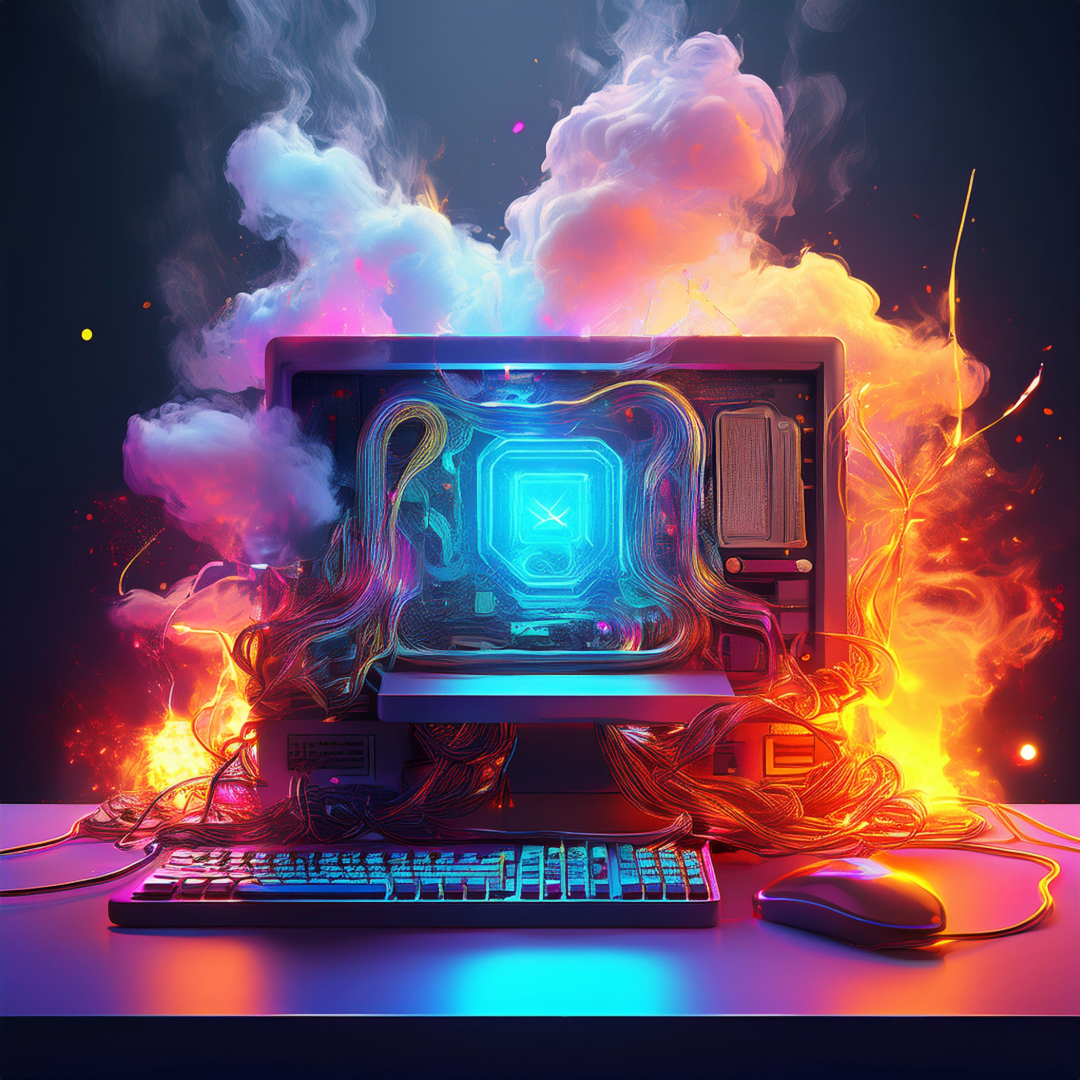Common Computer Issues and How to Fix Them
In today’s digital age, computers have become essential for work, communication, entertainment, and more. However, computers can experience issues that disrupt our daily routines. This blog post explores common computer problems and provides troubleshooting steps you can try. For more complex issues, we’ll introduce you to daryo89.pro, a reliable and affordable computer support service.
One key takeaway from this article is the importance of proactive measures. Regular maintenance, such as cleaning dust, updating software, and backing up data, can prevent many problems. Ignoring minor issues can lead to more significant problems down the line.
Common Culprits: Identifying Computer Issues
Let’s identify some common computer problems:
- Computer Won’t Start: A computer that fails to start could have a failing power supply. Always ensure the computer is plugged in properly and that the power outlet is working.
- Slow Performance: Slow performance can be caused by various factors, including insufficient RAM, a full hard drive, or malware infections.
- Virus Infections: Viruses and malware can cause slowdowns, data loss, and security breaches.
- Hardware Failures: Components like hard drives, RAM, or the power supply can fail, leading to crashes, data loss, and system instability.
- Operating System (OS) Problems: A corrupted or outdated OS can cause errors, crashes, and instability.
- Internet Connectivity Issues: Problems with your internet connection can prevent you from accessing websites or using online services.
- Overheating: Dust buildup can clog fans and vents, leading to overheating, performance issues, crashes, and hardware damage.
- Software Issues: Outdated or corrupted software can cause crashes, errors, and compatibility problems.
- Peripheral Problems: Issues with peripherals like your mouse, keyboard, or printer can disrupt your workflow.
Troubleshooting Tips: Taking Matters into Your Own Hands
Here are some troubleshooting steps you can take:
Slow Performance
- Restart your computer: This can resolve temporary glitches and free up system resources. If the problem persists, further investigation might be needed.
- Close unnecessary programs and browser tabs: Too many programs running simultaneously can slow down your computer.
- Free up disk space: Delete unnecessary files and programs.
- Update your operating system and software: Updates often include performance improvements and bug fixes.
- Run a virus scan: Malware can slow down your computer.
- Disable startup programs: Many programs automatically launch when you start your computer, slowing down startup time.
- Defragment your hard drive (HDD): This reorganizes files on your hard drive, making it faster to access data. Note that this is not necessary for solid-state drives (SSDs).
- Consider upgrading your RAM: Adding more RAM can improve performance if your computer struggles with multitasking.
- Use ReadyBoost to help performance: ReadyBoost can dedicate a USB flash drive to act as extra RAM.
- Install a firewall, anti-virus, and anti-spyware tools: These tools can help prevent slow performance caused by malware and other security threats. If performance issues persist, it might be time to seek professional help.
Virus Infections
- Install and run a virus scanner: Use a reputable antivirus program to scan for and remove viruses and malware.
- Disconnect from the internet: This prevents the virus from spreading or receiving updates.
- Reboot your computer into safe mode: This starts your computer with minimal programs running, making it easier to remove the virus.
- Delete temporary files: This may remove the virus if it’s programmed to initiate on startup.
- Delete or quarantine infected files: Follow your antivirus program’s instructions to remove the virus.
- Change all your passwords: This is a precautionary measure in case your passwords were compromised.
- Update your software, browser, and operating system: This helps prevent future infections.
- Reset your web browser: Malware can modify your web browser settings. Resetting your browser can restore your homepage and connection settings. If you’re still experiencing issues after these steps, it’s best to contact a professional.
Hardware Failures
Hardware failures can be diverse and often require specific troubleshooting steps. Here’s a general approach and some examples:
General Troubleshooting
- Back up your data immediately: This is crucial to prevent data loss.
- Run diagnostic tools: Use built-in utilities or third-party tools to assess the health of your hardware.
- Check for physical damage: Inspect your hardware for any signs of damage.
- Check for overheating: Ensure proper ventilation and clean any dust buildup.
- Reseat components: Try reseating components to ensure a proper connection.
- Replace aging drives: Hard drives have a limited lifespan.
- Consider upgrading to an SSD: SSDs are more reliable and offer better performance.
Specific Hardware Failure Examples
- Hard Drive Failure: Slow performance, clicking sounds, or frequent errors can indicate hard drive problems. Back up your data immediately and consider replacing the drive.
- RAM Issues: Computer crashes, freezes, or error messages could indicate faulty RAM. Test your RAM with diagnostic tools and replace faulty modules.
- Graphics Card Problems: Display issues like artifacts, crashes, or poor performance can point to graphics card problems. Update drivers, check for overheating, and ensure the card is properly seated.
- Power Supply Problems: System instability or failure to power on could be due to power supply issues. Test the power supply and replace it if faulty.
If you’re uncomfortable dealing with hardware issues, it’s always best to seek professional help.
Slow/Dropped Internet
- Restart your router and modem: This can often resolve temporary connection issues.
- Check network settings: Ensure your computer is connected to the correct network and that your Wi-Fi is enabled.
- Update network drivers: Outdated network drivers can cause connectivity issues.
- Contact your ISP: If the problem persists, contact your internet service provider to check for outages or other issues.
- Check for a bad cable or phone line: A faulty cable or phone line can cause dropped internet connections.
- Clean up temporary files: Temporary files can sometimes interfere with internet speed. If you’ve tried these steps and are still experiencing problems, consider seeking professional help.
When to Call in the Pros: daryo89.pro to the Rescue
While some computer issues can be resolved with simple troubleshooting, others require professional expertise. That’s where daryo89.pro comes in.
With years of experience in the field, daryo89.pro offers comprehensive computer support for a wide range of issues, including: , Research Steps Conducted]
- Virus and malware removal
- Hardware diagnostics and repair
- Operating system troubleshooting
- Software installation and configuration
- Data recovery
- And much more!
With daryo89.pro, you can expect:
- Expert technicians: Our team has the knowledge and experience to resolve even the most complex computer issues.
- Affordable rates: We offer our services at a very competitive price of £10.
- Quick turnaround time: We understand the importance of getting your computer back up and running quickly.
- Excellent customer service: We’re committed to providing our clients with the best possible support.
Don’t Let Computer Troubles Slow You Down!
Whether you’re experiencing slow performance, virus infections, or hardware failures, daryo89.pro is here to help. Visit our website at daryo89.pro or contact us today to learn more about our services and how we can help you resolve your computer issues quickly and affordably.
Conclusion
This blog post has explored some of the most common computer problems and provided basic troubleshooting tips. Remember that proactive measures like regular maintenance, updates, and backups can prevent many issues.
We’ve covered various problems, from slow performance and virus infections to hardware failures and internet connectivity issues. While some issues can be resolved with simple steps, others require professional expertise.
If you’re facing a computer problem that seems beyond your capabilities, don’t hesitate to seek help. Daryo89.pro offers expert and affordable computer support with a quick turnaround time. We’re here to help you get your computer back up and running smoothly.












Add comment